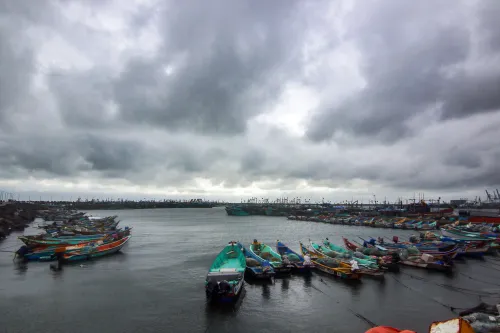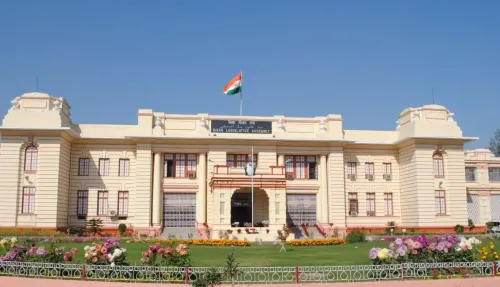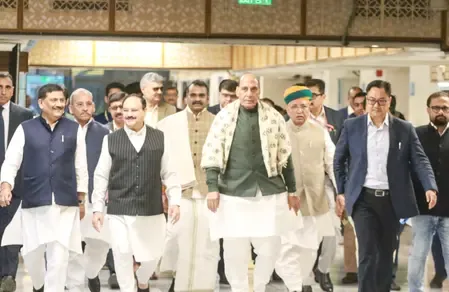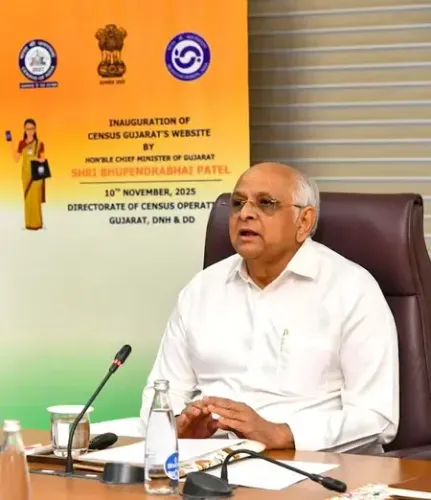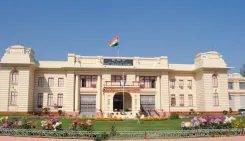Why is K'taka BJP Criticizing Congress Ministers over Biocon Chief?
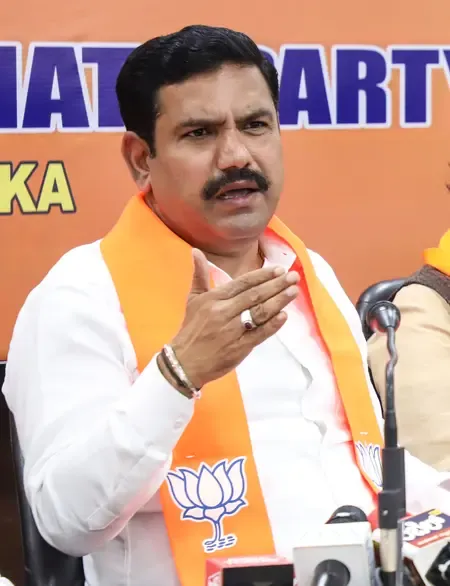
Synopsis
Key Takeaways
- Kiran Mazumdar-Shaw is a respected industry leader whose concerns reflect broader issues in Bengaluru.
- The BJP emphasizes the need to treat industry leaders with respect to foster economic growth.
- Concerns about declining infrastructure may deter global investments.
- The political clash reveals deep divisions between Karnataka's parties regarding economic management.
- Continued neglect of infrastructure could lead to a loss of job opportunities for locals.
Bengaluru, Oct 15 (NationPress) The Karnataka chapter of the Bharatiya Janata Party has launched a staunch critique against the ministers from the ruling Congress party for mocking Biocon's chief, Kiran Mazumdar-Shaw, regarding her expressions of concern over the dismal state of road infrastructure and garbage management in Bengaluru. They emphasized that disparaging industry leaders equates to disrespecting the state itself.
During a press conference in Chitradurga, BJP state president B.Y. Vijayendra remarked, “The government is facing substantial public outcry concerning inadequate infrastructure in Bengaluru. Kiran Mazumdar-Shaw is a source of pride for our state, yet they choose to make derogatory comments about her. When former Chief Minister B.S. Yediyurappa was in power, Infosys’s former CFO Mohandas Pai criticized the BJP-led government, but Yediyurappa promptly invited him for a discussion, offered him tea, and engaged in constructive dialogue to address Bengaluru’s issues.”
He noted that whether it’s Kiran Mazumdar-Shaw, Mohandas Pai, or any other prominent industry figure providing feedback, they should be met with a welcoming attitude; disrespecting them is tantamount to disrespecting Karnataka.
In a pointed critique of the Congress-led state government, Vijayendra pointed to Google’s initiative to establish an AI hub in Visakhapatnam, Andhra Pradesh, expressing disappointment over the government’s failure to draw significant companies to Karnataka.
He disclosed that a massive investment of ₹1.3 lakh crore by Google, which was anticipated to generate approximately 30,000 jobs in the state, has instead been directed to Andhra Pradesh.
In a post on X, the BJP MLA stated, “The international appeal that Bengaluru once possessed is steadily diminishing under the governance of the Karnataka administration. The plethora of job opportunities for millions of skilled yet unemployed youth is gradually evaporating, creating a sense of unease among the younger demographic here.”
Vijayendra sharply criticized the state capital, already infamous for violence in various locales, for now encountering a scenario where “global firms are retreating from Bengaluru.”
“Once regarded as a hub for global talent, Bengaluru has now been labeled as ‘Gundigala Bengaluru’ (pothole-ridden Bengaluru) due to the government’s ineptitude and the lack of effective leadership from Deputy Chief Minister D.K. Shivakumar. Consequently, thousands of jobs that should rightfully belong to Kannadigas are being lost to the neighboring state,” Vijayendra asserted.
He accused the Congress government of entirely neglecting development and failing to retain sectors that require minimal capital investment. Its inability to provide even basic infrastructure, he said, is a significant setback for Karnataka.
The controversy intensified after a viral statement from Biocon’s Kiran Mazumdar-Shaw, who lambasted Bengaluru’s poor road conditions and garbage management. Her comments have reignited discussions regarding the Congress-led government’s management of the city’s infrastructure.
In response, Shivakumar, along with IT and BT Minister Priyank Kharge, Large and Medium Industries Minister M.B. Patil, and Labour Minister Santhosh Lad, claimed that the government was addressing the issues. However, they also took jabs at Mazumdar-Shaw, challenging her to voice her concerns against the Union government.
Priyank Kharge added that in states such as Maharashtra and Uttar Pradesh, anyone who criticizes the government would face imprisonment and be labeled as “anti-state.”


